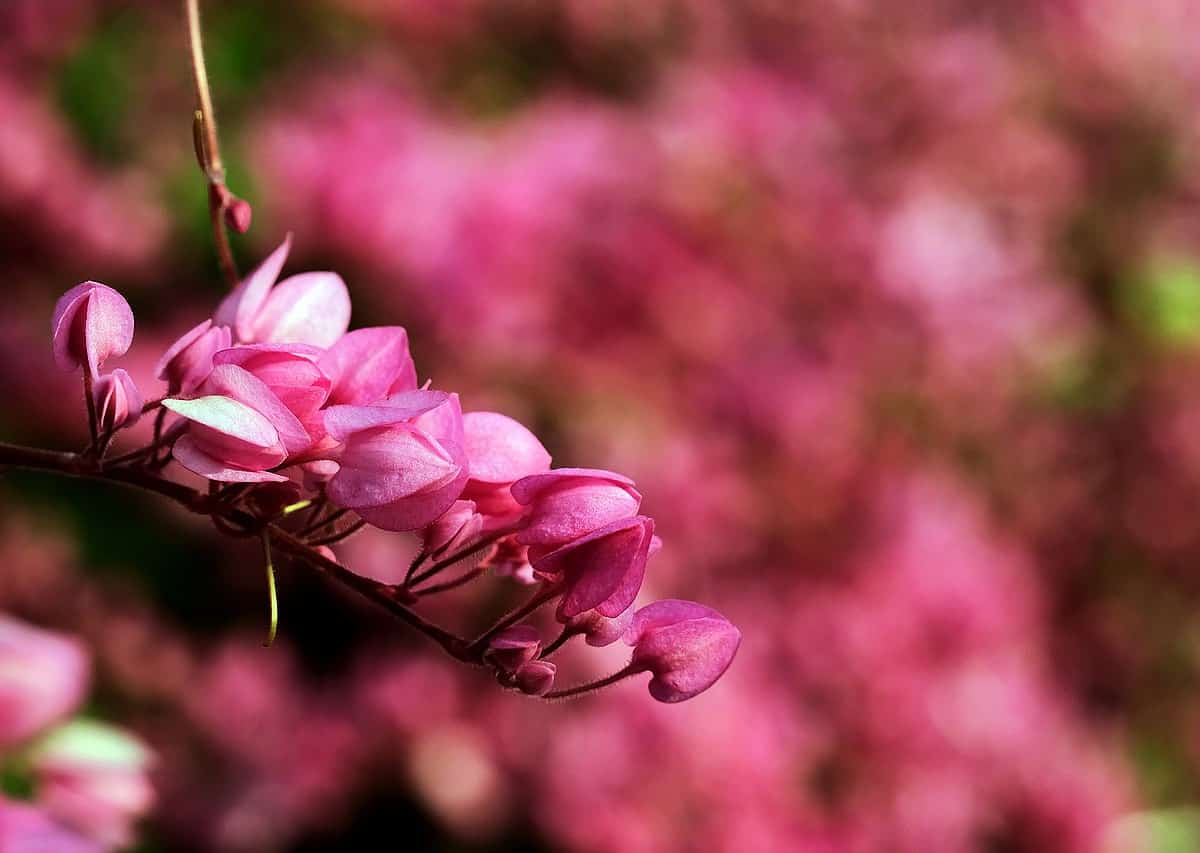Coral vine, scientifically known as Antigonon leptopus, is a captivating and versatile plant that offers a unique solution for beautifying and covering cyclone fences in Costa Rica. With its lush foliage and vibrant clusters of pink or coral-colored flowers, coral vine adds a touch of natural beauty and elegance to any outdoor space. This fast-growing vine is well-adapted to various climatic conditions and thrives in warm, tropical environments.
In this blog post, we will explore the enchanting characteristics of coral vine and discuss its benefits and considerations when using it to cover cyclone fences. Whether you’re looking to enhance your garden, create privacy, or simply add a splash of color, coral vine proves to be an excellent choice for transforming a plain fence into a stunning vertical garden
Commonly know as bellísima in Spanish, there couldn’t be a better description of this gorgeous plant. Adrab, black-and-white photo certainly doesn’t do this beauty justice!
Throughout the year, coral vine produces prolific blooms of pastel pink and white flowers, while its evergreen, heart-shaped leaves forma dense veil of foliage.For fences, walls or arbors, coral vine has long been the choice of many tropical gardeners.
You will frequently seeit adorning Tico homes in most parts of the country, exceptin coastal areas, where it is not tolerant to salty breezes.
Coral vine is actually a native to the tropical Americas, but has been distributed around the globe as a world-class ornamental. You can often find it in leading nurseries, but many folks propagate this plant from seeds or volunteer seedlings that grow under old vines. Unfortunately, you can’t propagate this plant from stem cuttings.
If you spot one in your neighborhood, usually all it takes is a little kindness and diplomacy to ask for a young plant or some seeds. Ticos are usually more than welcome to share their plants with the neighbors.
Perhaps you can even share something with your neighbor from your own garden, much like the Ticos have the custom of doing here. Seeds or young plants should be planted with care in pots or plastic nursery bags and kept well watered until they are well established. Later, when the plants are strong and healthy, you can transplant them out along your fence or preferred site.
Coral vines do best in sunny locations in a wide range of soil; however, additions of organic fertilizers will boost their growth and blooming. You can also use foliar sprays to enhance their growth.
At first, you may need to help the plant along by weaving its new climbing tendrils on the fence or trellis, but after that, all you have to do is just watch it take off! Coral vines are hardy plants, which require little attention, however, caterpillars may attack the leaves.
This can be controlled with a biological insecticide known as B.T.(Bacillus Thurgensinsensis), which is sold in most Costa Rican agricultural supply centers as Javelin or Di-pel. It’s actually a bacterium, which is harmless to us, but creates fatal stomach flu in caterpillars. Until next time – Sea bellísima!






